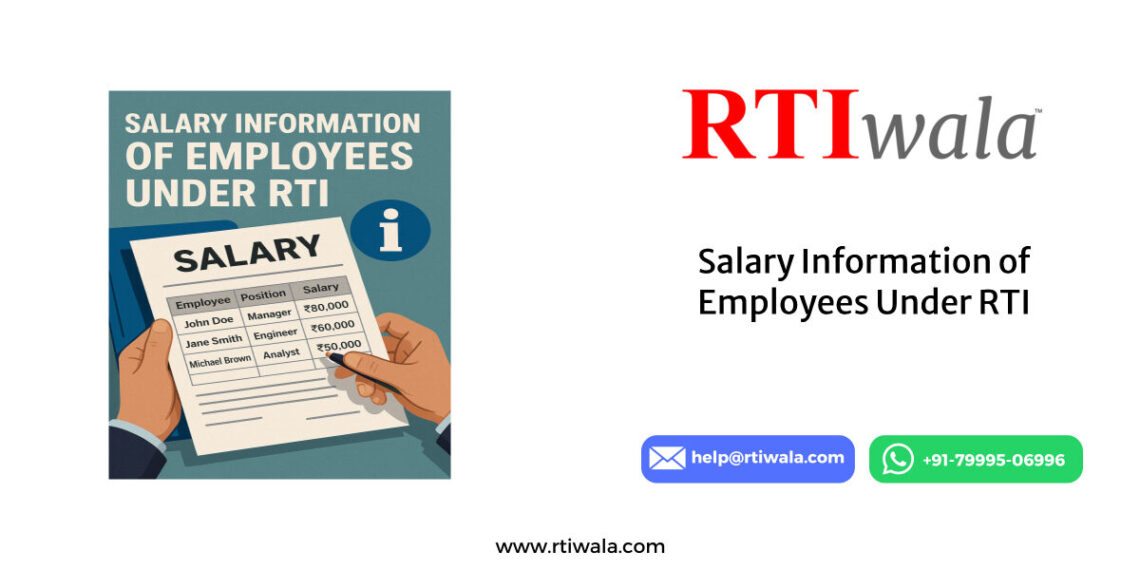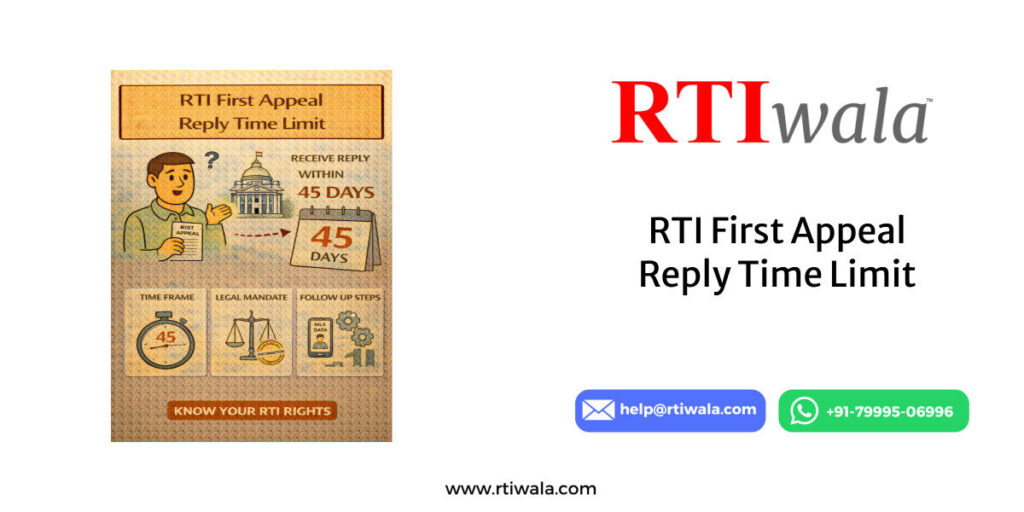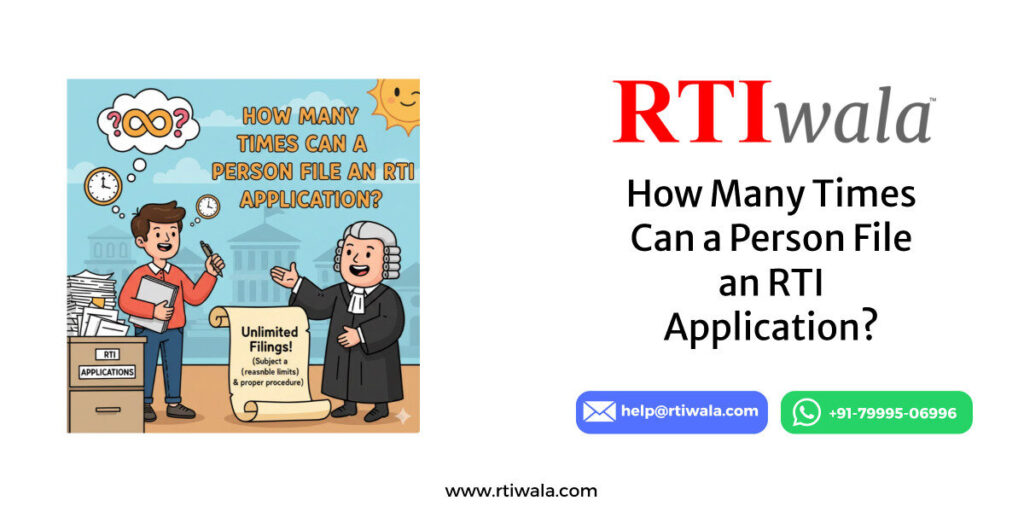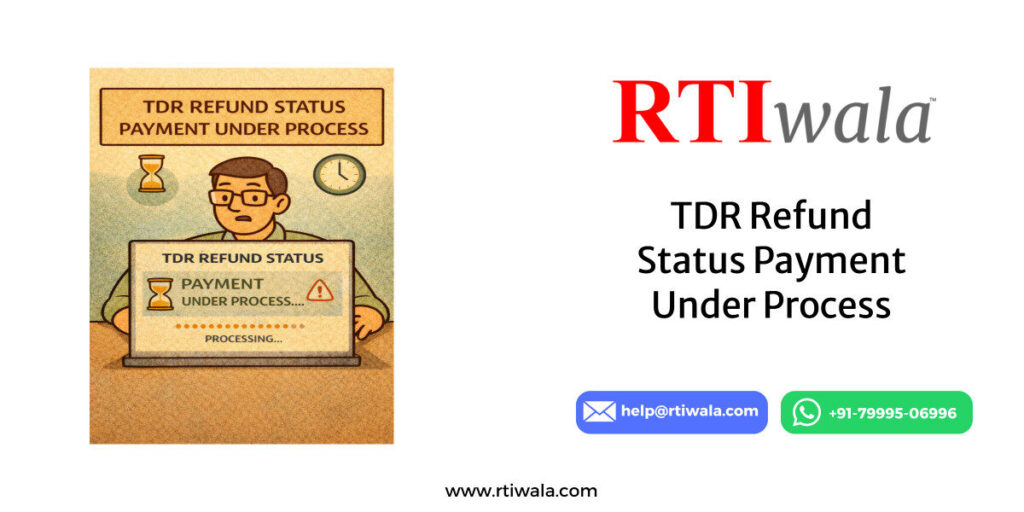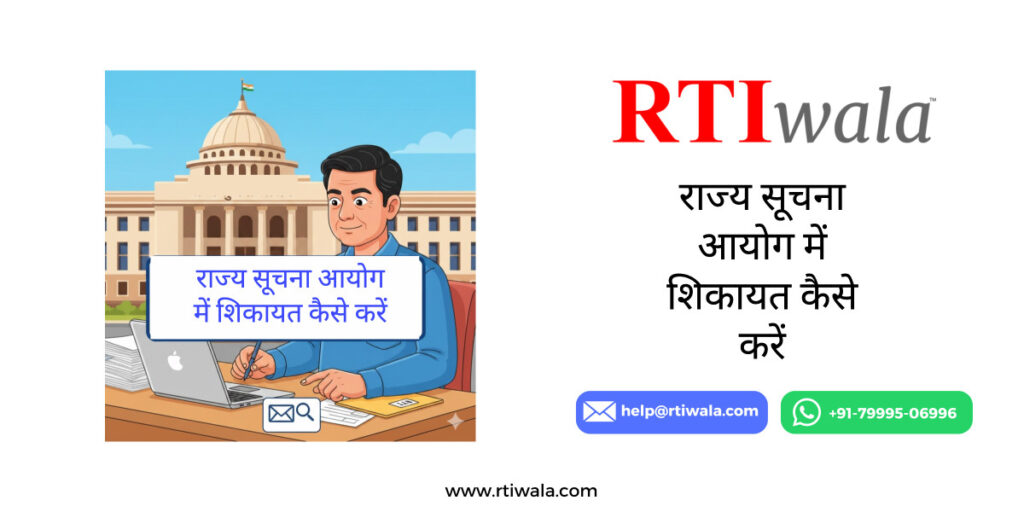Introduction: Can You Ask for Someone’s Salary Details Under RTI?
Have you ever thought about whether you can actually ask for the salary details of government employees using the Right to Information Act, 2005? Whether you’re a whistleblower, a journalist, or just someone who’s been hit hard by issues like corruption or favoritism, RTI can be a real game-changer when it comes to making salary info clear and accessible.
In this article, we’ll make it easy to understand how you can file an RTI to get the salary info you need. We’ll talk about who can make these requests, what kind of details you can ask for, and how RTIwala can help you navigate the whole process in a smooth and legal way.
Can Salary Details Be Disclosed Under RTI?
Yes—salary information of employees public servants is generally considered public information, as these salaries are paid using taxpayers’ money. The Central Information Commission (CIC) and courts have ruled that salary details are not considered “personal information” for government employees.
Information You Can Seek:
- Gross and net salary of an employee
- Pay scale, grade pay, allowances
- Deductions like GPF, loan EMI, income tax
- Increment details and promotion-based hikes
- Overtime or extra duty compensation
- Date of joining, promotions, or deputations
What You Cannot Ask:
- Bank account details where salary is credited
- Medical reimbursements for specific treatments
- Third-party employee’s family or loan info (without consent or overriding public interest)
Common Reasons for Filing RTI on Salary-Related Matters
- Discrepancy in your own salary or increment
- Suspected corruption or ghost employee payments
- Comparing salary structure across departments
- Verifying if someone is still drawing salary from government rolls
- Delayed or denied salary payments
- RTI for salary slip for own use (e.g., loan, visa, tax)
Step-by-Step: How to File RTI for salary information of employees
Step 1: Identify the Correct PIO
File your RTI to the Public Information Officer (PIO) of:
- The employee’s department (e.g., Education, Police, Revenue)
- Public sector company or PSU HR office
- Treasury office for disbursement records (if applicable)
Confused? RTIwala automatically maps the RTI to the right PIO for your case.
Step 2: Draft a Clear RTI Application
Keep your query factual, respectful, and legally relevant.
Example RTI Draft:
“Please provide certified monthly salary details (gross, deductions, net) of Mr. Ajay Sharma, Senior Clerk, posted at XYZ Office from April 2023 to March 2024.”
Want a perfectly framed query with no rejection risk? Get help via Custom Drafting.
Step 3: File RTI Online
🔹 Use RTIwala Online RTI Filing for:
- Professionally formatted RTI
- Accurate department selection
- Safe and secure processing
- Optional Anonymous RTI if required
🔹 Government Portals:
Use https://rtionline.gov.in for Central Government employee info. For state employees, you must use the respective state’s RTI portal (where available).
Step 4: Receive Reply or File an Appeal
- The PIO must respond within 30 days
- Reply may come via post or email
- If no response or denial without reason, file First Appeal
- Still dissatisfied? Escalate to the Information Commission
RTIwala Follow-up Add-ons help track replies and manage appeals professionally.
RTIwala Services for Salary-Related RTI Matters
- Online RTI: Expert handling for salary disputes, delays, or queries
- Anonymous RTI: Protect your identity while raising valid questions
- Expert Consultation: Talk to RTI lawyers and experts
- Custom Drafting: Craft legally valid applications
- RTI Products: Combo kits for whistleblowers, activists, and employees
- Pricing: Transparent and budget-friendly for all
Important Tips Before You File
- Don’t ask for private info like PAN or bank account
- Use employee name, post, and department clearly
- File your own salary query as a right, not as a favor
- If asking for others’ info, state public interest (e.g., suspected corruption)
Conclusion: RTI Ensures Salary Transparency in Government
Whether you’re a government employee, a concerned citizen, or a watchdog fighting systemic corruption, the RTI Act gives you legal access to salary records of public servants.
Let RTIwala help you ask the right questions—safely, smartly, and successfully.












































